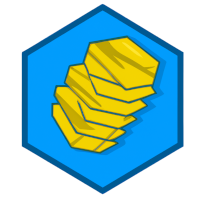| .github | ||
| assets | ||
| backend | ||
| frontend | ||
| script | ||
| .gitignore | ||
| backend-test.env | ||
| CONTRIBUTING.md | ||
| LICENSE | ||
| README.md | ||
| renovate.json5 | ||
| Taskfile.backend.yml | ||
| Taskfile.frontend.yml | ||
| Taskfile.yml | ||

Rotini
Overview
Rotini is a self-hosted cloud storage application that gives you full-control over the data you store. It aims for simplicity and extensibility, such that you can get started in minutes and easily fork or contribute upstream if you fancy a feature that's not already there.
It's roadmap is currently TBD and will become better defined as it gets closer to a first release.
Development
Tooling
Utility commands are managed by go-task and can be called from anywhere. Running . script/bootstrap in the project root installs go-task within the project and gets everything ready. From there, task -l provides a
breakdown of available tools.
Note that this is the preferred way to running any tooling-related task within the repository, regardless of
environment. Individual scripts exist under /{frontend,backend}/script but generally assume that they will be called
through task to inject some environment variables.
Formatting
Formatting in either frontend or backend environment can be done via task {fe,be}:lint. Applying fixes is available
through the lintfix variant of the command.
Running tests
Test suites can be executed by environment via task {fe,be}:test.
Running locally
The application requires a Postgres database instance to be made available to the backend. Setting up a local database is handled by the backend start command.
Starting the backend (including a database) and frontend applications can be done via task be:docker:start and task fe:start.
See the README files of each of those environments (backend, frontend) for specific requirements around *.env files that aren't committed with the code.
Production-ready deployments
Coming soon!